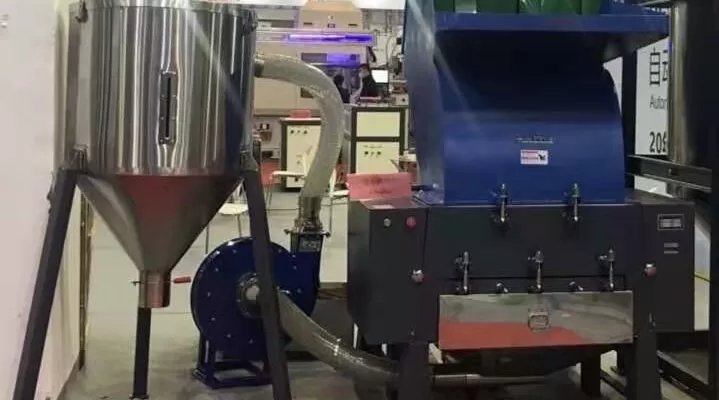In the labyrinth of the global recycling market, the presence and number of plastic recycling plants in the USA spark considerable interest. As the CEO of Amige, a pioneer in producing state-of-the-art plastic crushers and shredders, I’ve had the privilege of delving into the intricacies of the recycling world. Our journey has taken us across continents, offering us a bird’s eye view of how different countries tackle the pressing issue of plastic waste. The USA, with its vast landscape and diverse economy, provides a unique case study.

Estimates suggest there are over 1,800 plastic recycling plants scattered across the United States. This figure reflects a vibrant and growing sector, committed to addressing the plastic waste challenge head-on.
The scale of plastic waste generation in the USA demands a robust response. Our interactions with clients in key markets like Egypt, America, Mexico, and Ecuador have revealed a universal narrative: the push towards sustainability is reshaping industries. The American recycling sector’s growth trajectory is particularly compelling, mirroring broader global trends towards environmental stewardship.
What’s Fueling the Growth of Plastic Recycling Plants in the USA?
The expansion of plastic recycling facilities in the USA is driven by a confluence of regulatory pressures, technological advancements, and shifting consumer preferences. Federal and state regulations aiming to reduce plastic waste have set the stage for the sector’s growth. Initiatives like the National Recycling Strategy underscore the government’s commitment to enhancing the recycling infrastructure
Moreover, American consumers are increasingly demanding products with recycled content, pushing companies to integrate recycled materials into their offerings. This shift is not just a cultural moment; it’s a transformation of the market landscape, one that demands innovation and adaptation from businesses across the spectrum.
How Do These Plants Impact the Economy and Environment?
The economic and environmental impacts of plastic recycling plants in the USA are significant and multifaceted. Economically, the recycling industry supports thousands of jobs and contributes billions to the national GDP. Environmentally, recycling reduces the reliance on landfill, conserves natural resources, and cuts down greenhouse gas emissions
Our experience at Amige, working with forward-thinking procurement officers like Wasi Khan, has highlighted the critical balance between quality and cost-effectiveness in the recycling industry. The ability of American recycling plants to turn plastic waste into valuable resources exemplifies the potential of a circular economy to drive both business and environmental goals.
What Challenges Do Plastic Recycling Plants Face in the USA?
Despite the optimistic outlook, the road is fraught with challenges. The complexity of plastic waste, varying recycling rates across states, and the volatility of the market for recycled materials pose significant hurdles. Furthermore, the industry grapples with technological constraints and the need for more effective waste collection and sorting systems
At Amige, we’ve encountered and navigated similar challenges, leveraging our expertise to innovate and refine our offerings. It’s clear that overcoming these obstacles requires a concerted effort from all stakeholders, including industry leaders, policymakers, and consumers.
How Can Innovation Drive the Future of Plastic Recycling in the USA?
Innovation is the cornerstone of progress in the plastic recycling sector. Advanced sorting technologies, chemical recycling methods, and innovative product design can significantly enhance the efficiency and output of recycling processes. Our journey at Amige, developing cutting-edge plastic crushers and shredders, has shown us the transformative power of technology in tackling specific industry challenges
Embracing innovative solutions not only improves the quality of recycled materials but also expands the range of recyclable plastics. This evolution is crucial for building a resilient, sustainable recycling ecosystem in the USA.
The Role of Policies and Regulations in Shaping the Industry
Government policies and regulations play a pivotal role in shaping the recycling landscape in the USA. Legislation such as waste management policies and recycling standards set the framework within which the industry operates. These regulations not only mandate recycling practices but also incentivize innovation and investment in the sector.
Our engagements with industry stakeholders have underscored the importance of a supportive regulatory environment. It fosters a culture of sustainability that benefits businesses, consumers, and the planet alike.
International Collaboration: A Gateway to Enhanced Recycling Efforts
International collaboration is key to elevating the recycling industry’s capabilities. Partnerships with global companies bring fresh perspectives, advanced technologies.
